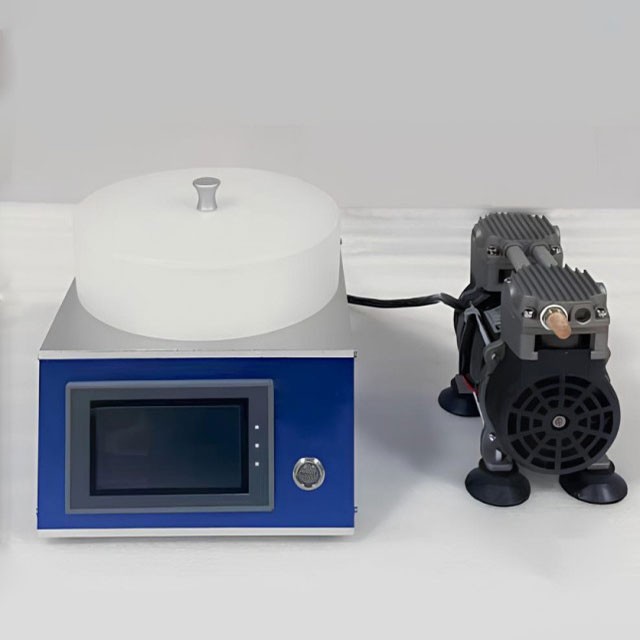
homogenizer
Laboratory Homogenizer Mixer Benchtop 4 Inch PTFE Cavity Homogenizer
Item Number : COA-3
Price varies based on specs and customizations

Shipping:
Contact us to get shipping details Enjoy On-time Dispatch Guarantee.
Why Choose Us
Reliable PartnerEasy ordering process, quality products, and dedicated support for your business success.
Introduction
4 inch PTFE cavity fully automatic laboratory homogenizer is a versatile laboratory equipment designed for efficient and precise homogenization of small samples. It features a compact design, allowing for easy glove box operation and space optimization. The corrosion-resistant transparent cover with constant torque positioning ensures sample visibility and accurate positioning. The integrated mold opening inner cavity facilitates effortless disassembly, cleaning, and replacement. The LCD text display color facial mask button provides user-friendly operation. Additionally, the adjustable speed of acceleration and deceleration and multi-step program operation control enhance experimental flexibility. The DC brushless motor ensures reliable performance, while the maximum recommended spin coating size of 4 inches caters to various sample sizes.
Details & part
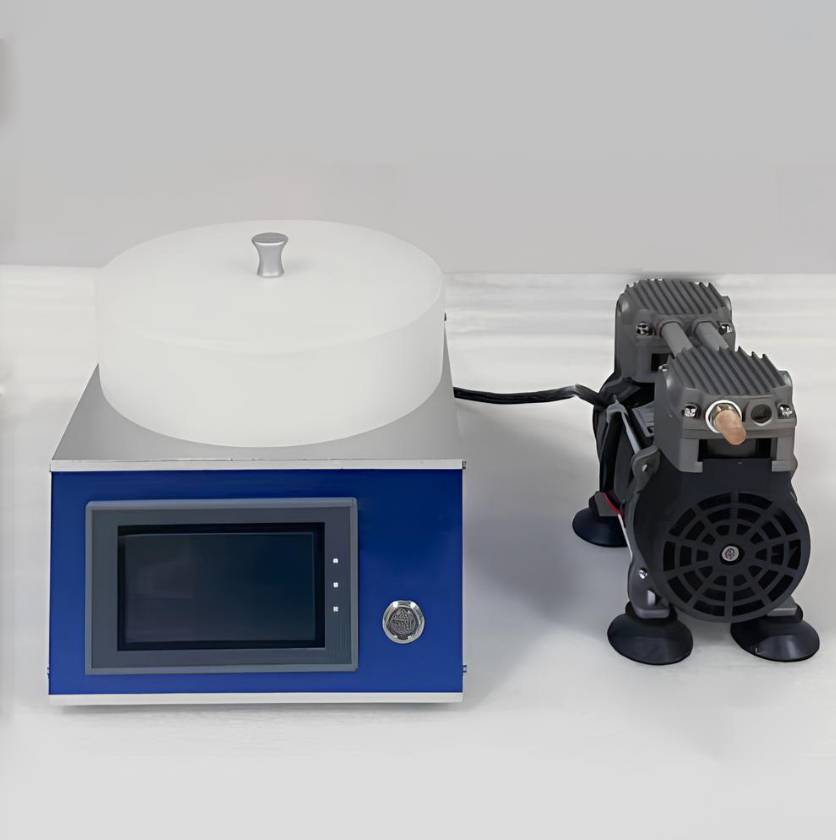
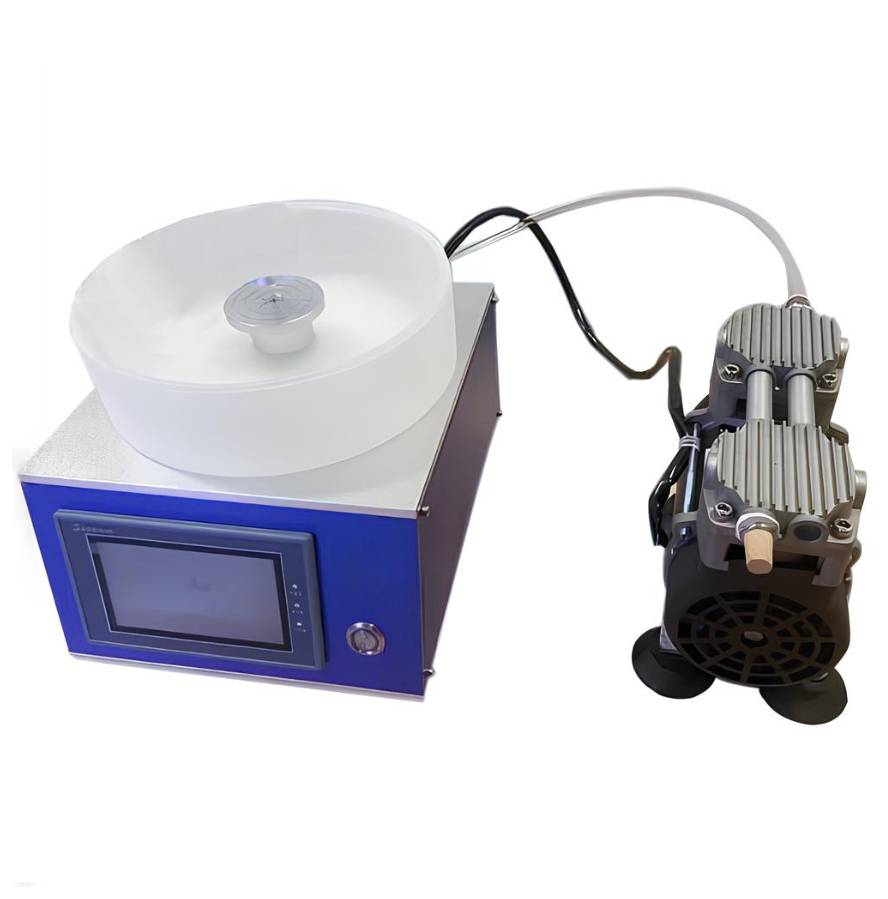
Applications
- Life sciences: homogenization of biological samples, cell lysis, and tissue disruption
- Chemistry: mixing and homogenization of chemical compounds, preparation of emulsions and suspensions
- Materials science: dispersion of nanoparticles, preparation of composite materials, and coating applications
- Food science: homogenization of food products, preparation of sauces and dressings, and extraction of flavors
- Pharmaceutical industry: homogenization of pharmaceutical formulations, preparation of creams and ointments, and extraction of active ingredients
Features
- Easy operation: LCD text display color facial mask button, easy to use.
- High quality: Corrosion resistant transparent cover with constant torque positioning for chain positioning.
- Safety: The speed of acceleration and deceleration is controllable and adjustable, and multi step program operation control can be set.
- Durable: DC brushless motor, maximum recommended spin coating size: 4 inch circular substrate.
- Versatile: Aluminum alloy shell (EZ4 S) corrosion resistant PP shell optional (EZ S PP).
Principle
4 inch PTFE cavity fully automatic laboratory homogenizer employs the principle of high-speed shearing and grinding to effectively homogenize and disperse various materials. The high-speed rotating rotor generates intense shear forces that break down and disperse particles into a uniform mixture. The stator, with its fixed teeth, creates a narrow gap that the material passes through, further enhancing the homogenization process. This principle allows for efficient particle size reduction, emulsification, and dispersion, making it suitable for a wide range of applications in the laboratory, including sample preparation, cell disruption, and protein extraction.
Advantages
- Compact and portable: Small footprint and lightweight design make it easy to store and transport.
- User-friendly: Intuitive controls and digital display for easy operation.
- Durable construction: Sturdy materials and robust build ensure longevity.
- Powerful motor: Delivers efficient homogenization performance, even for viscous samples.
- Easy to clean: Disassembles quickly and easily for convenient cleaning and maintenance.
- Versatile applications: Suitable for a wide range of sample types and homogenization protocols.
- Cost-effective: Affordable option for laboratories with limited budgets.
- Advanced safety features: Protective cover and interlock system ensure safe operation.
- Excellent technical support: Manufacturer provides comprehensive technical assistance and troubleshooting support.
- Wide range of accessories: Optional accessories enhance functionality and versatility.
Technical specifications
| Speed range | 100-99999 rpm |
|---|---|
| Speed resolution | 1rpm |
| Adjustable acceleration range | 100-99999rpm/s |
| Maximum single step length | 3000S |
| Time resolution | 1s |
| Wide voltage application | AC100-230V input, selectable for single or multi step operation in both Chinese and English, with up to 5 sets of 5 step programs available |
| Standard configuration | 10mm, 25mm, and 2 inch vacuum loading trays |
FAQ
What Is A Homogenizer And What Are Its Main Applications?
What Is Polytetrafluoroethylene (PTFE)?
What Are The Different Types Of Homogenizers Available?
What Are The Key Properties And Characteristics Of PTFE?
How Does A Homogenizer Work?
What Are The Applications Of PTFE?
What Are The Advantages Of Using A Homogenizer In Laboratory Settings?
What Are The Advantages Of Using PTFE?
Can You Explain The Application Of Homogenizers In Microbial Inactivation?
Are There Any Limitations Or Considerations When Using PTFE?
How Does Homogenization Affect The Quality Of Milk?
4.8
out of
5
Excellent homogenizer for our lab. Compact design makes it easy to use in limited space, and the transparent cover provides clear visibility during operation.
4.9
out of
5
Durable and reliable equipment. Easy to clean and maintain, ensuring consistent performance over time.
4.7
out of
5
Provides efficient homogenization with precise speed control. User-friendly interface makes it easy to set up and operate.
4.8
out of
5
Versatile homogenizer suitable for various sample types. The adjustable speed and program control allow for customization of homogenization protocols.
4.9
out of
5
Advanced safety features ensure safe operation, giving peace of mind during use.
4.7
out of
5
Compact and portable design makes it easy to use and store. Excellent value for money, providing high-quality homogenization at an affordable price.
4.9
out of
5
Robust construction ensures durability and longevity. Easy disassembly facilitates cleaning and maintenance.
4.8
out of
5
Provides excellent technical support, ensuring timely assistance and troubleshooting.
4.7
out of
5
Wide range of accessories enhances functionality and versatility, allowing for customized experimental setups.
4.9
out of
5
High-quality homogenizer that meets our laboratory's specific needs. Delivers consistent and reproducible results.
4.8
out of
5
User-friendly design with intuitive controls simplifies operation. The LCD display provides clear and concise information.
4.7
out of
5
Compact and lightweight design makes it easy to move and store. Excellent customer service provides prompt and helpful support.
REQUEST A QUOTE
Our professional team will reply to you within one business day. Please feel free to contact us!
Related Products

Benchtop Laboratory Homogenizer Mixer with 4 Inch Aluminum Alloy Chamber
The 4-inch aluminum alloy cavity fully automatic laboratory glue dispensing machine is a compact and corrosion-resistant device designed for laboratory use. It features a transparent cover with constant torque positioning, an integrated mold opening inner cavity for easy disassembly and cleaning, and an LCD text display color facial mask button for ease of use.
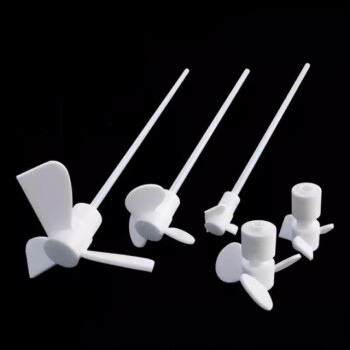
Custom PTFE Teflon Parts Manufacturer Laboratory High Temperature Mixing Paddle Mixer
The PTFE mixing paddle mixer is a versatile and robust tool designed for laboratory use, particularly in environments requiring high resistance to chemicals and extreme temperatures. Crafted from high-quality PTFE, this mixer boasts several key features that enhance its functionality and durability.

Laboratory Disc Rotary Mixer for Efficient Sample Mixing and Homogenization
Efficient Laboratory Disc Rotary Mixer for Precise Sample Mixing, Versatile for Various Applications, DC Motor and Microcomputer Control, Adjustable Speed and Angle.

Custom PTFE Teflon Parts Manufacturer PTFE Beaker and Lids
The PTFE beaker is a laboratory container that is resistant to acid, alkali, high and low temperatures and is suitable for temperatures ranging from -200ºC to +250ºC. This beaker has excellent chemical stability and is widely used for heat treatment samples and volume analysis.

Custom PTFE Teflon Parts Manufacturer for Sampling Solution Sample and Dry Powder Spoons
The PTFE sampling spoon, also known as a solution spoon or sample spoon, is a crucial tool for accurately introducing dry powder samples in various analytical processes. Made from PTFE, these spoons offer excellent chemical stability, corrosion resistance, and non-stick properties, making them ideal for handling delicate and reactive substances in laboratory settings.

Custom PTFE Teflon Parts Manufacturer for Acid and Alkali Resistant Chemical Powder Material Scoops
Known for its excellent thermal stability, chemical resistance and electrical insulating properties, PTFE is a versatile thermoplastic material.

Custom PTFE Teflon Parts Manufacturer for PTFE Mesh F4 Sieve
PTFE mesh sieve is a specialized test sieve designed for particle analysis in various industries, featuring a non-metallic mesh woven from PTFE filament. This synthetic mesh is ideal for applications where metal contamination is a concern . PTFE sieves are crucial for maintaining the integrity of samples in sensitive environments, ensuring accurate and reliable results in particle size distribution analysis.
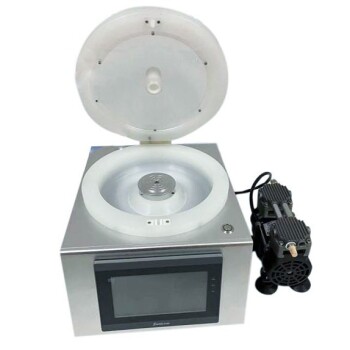
Laboratory Homogenizer Mixer Benchtop Homogenizer with 8 Inch PP Chamber
The 8-inch PP chamber laboratory homogenizer is a versatile and powerful piece of equipment designed for efficient homogenization and mixing of various samples in a laboratory setting. Constructed from durable materials, this homogenizer features a spacious 8-inch PP chamber, providing ample capacity for sample processing. Its advanced homogenization mechanism ensures thorough and consistent mixing, making it ideal for applications in fields such as biology, chemistry, and pharmaceuticals. With its user-friendly design and reliable performance, the 8-inch PP chamber laboratory homogenizer is an indispensable tool for laboratories seeking efficient and effective sample preparation.
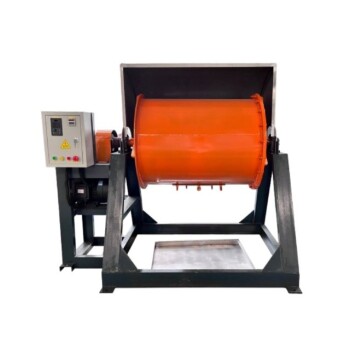
Stainless Steel Laboratory Ball Mill for Dry Powder and Liquid with Ceramic Polyurethane Lining
Discover the versatile stainless steel dry powder/liquid horizontal ball mill with ceramic/polyurethane lining. Ideal for ceramic, chemical, metallurgical, and building materials industries. High grinding efficiency and uniform particle size.

Laboratory Test Sieves and Vibratory Sieve Shaker Machine
Efficiently process powders, granules, and small blocks with a high-frequency vibration sieve. Control vibration frequency, screen continuously or intermittently, and achieve accurate particle size determination, separation, and classification.

Laboratory Small Constant Temperature Heated Magnetic Stirrer Heater and Stirrer
The Laboratory Small Constant Temperature Heating Magnetic Stirrer is a versatile tool designed for precise temperature control and efficient mixing in various laboratory applications.

Custom PTFE Teflon Parts Manufacturer for Centrifuge Tubes
PTFE centrifugal tubes are highly valued for their exceptional chemical resistance, thermal stability, and non-stick properties, making them indispensable in various high-demand sectors. These tubes are particularly useful in environments where exposure to corrosive substances, high temperatures, or stringent cleanliness requirements are prevalent.
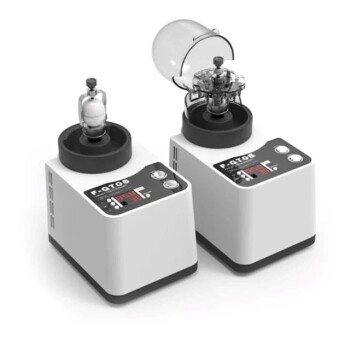
Laboratory Micro Tissue Grinding Mill Grinder
KT-MT10 is a miniature ball mill with a compact structure design. The width and depth are only 15X21 cm, and the total weight is only 8 kg. It can be used with a minimum 0.2ml centrifuge tube or a maximum 15ml ball mill jar.
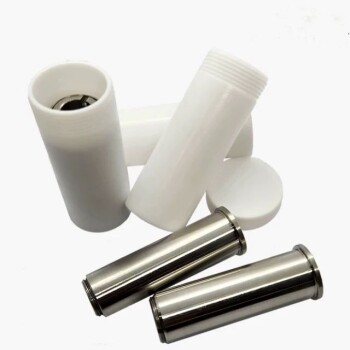
Custom PTFE Teflon Parts Manufacturer for PTFE Bottle Oil Fume Sampling Tube
PTFE products are generally called "non-stick coating", which is a synthetic polymer material that replaces all hydrogen atoms in polyethylene with fluorine.
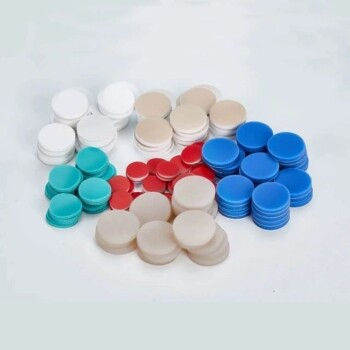
Custom PTFE Teflon Parts Manufacturer for Gaskets and More
Gaskets are materials placed between two flat surfaces to enhance the seal. To prevent fluid leakage, sealing elements are arranged between static sealing surfaces.
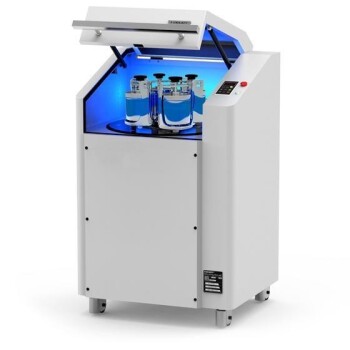
Laboratory Planetary Ball Mill Cabinet Planetary Ball Milling Machine
The vertical cabinet structure combined with ergonomic design enables users to obtain the best comfortable experience in standing operation. The maximum processing capacity is 2000ml, and the speed is 1200 revolutions per minute.
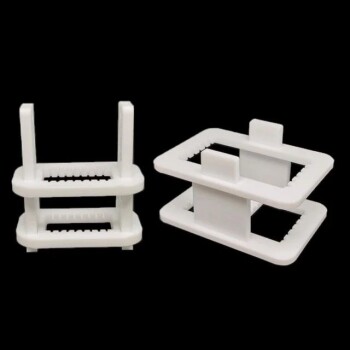
Custom PTFE Teflon Parts Manufacturer for Conductive Glass Substrate Cleaning Rack
The PTFE conductive glass substrate cleaning rack is used as the carrier of the square solar cell silicon wafer to ensure efficient and pollution-free handling during the cleaning process.
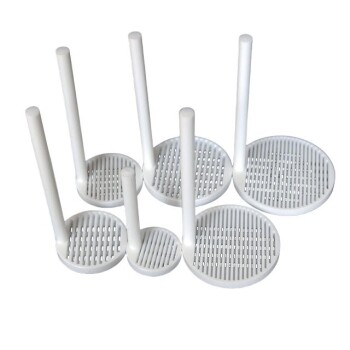
Custom PTFE Teflon Parts Manufacturer for Cleaning Racks
PTFE cleaning racks are mainly made of tetrafluoroethylene. PTFE, known as the "King of Plastics", is a polymer compound made of tetrafluoroethylene.
Related Articles

Versatile Applications of PTFE Cleaning Racks: Enhancing Laboratory Efficiency and Precision
Delve into the diverse applications of PTFE cleaning racks in laboratory settings. Discover how these essential tools optimize cleaning processes, enhance precision, and contribute to overall laboratory efficiency and accuracy.

PTFE Cleaning Racks: The Ultimate Guide to Cleaning and Drying Labware
In this comprehensive guide, we'll delve into the world of PTFE cleaning racks, exploring their benefits, applications, and the best practices for cleaning and drying labware to ensure optimal performance and longevity.

Innovative Application of PTFE in Mechanical Seals
PTFE has become one of the core materials in the field of mechanical seals due to its unique chemical stability, low friction coefficient (0.04-0.15), wide temperature range (-268°C to +315°C) and excellent corrosion resistance (pH 0-14).

The key role of PTFE in semiconductor manufacturing: from gas pipelines to electrical insulation
From high-purity gas delivery pipelines to precision electrical insulation components, the multi-faceted application of PTFE in the semiconductor industry chain provides important guarantees for the purity, stability and reliability of the manufacturing process.

Understanding the Tablet Press Machine R&D Lab Model and its Features(2)
The Tablet Press Machine R&D Model, also known as a single punch tablet press, is designed for the development and small batch production of tablets. It is widely used in industries such as pharmacy, chemical, food, and metallurgy. This machine operates automatically, continuously filling, pressing, and ejecting tablets. Its key features include high precision filling, low noise, low material consumption, and smooth operation. It is particularly useful for research and development in laboratories, hospitals, and plants, catering to small-scale production needs.

Benchtop KBr Pellet Press: A Comprehensive Overview
If you're looking for a way to compress powdered materials into uniform pellets without contamination, then the KBr Pellet Press might just be the perfect solution for you. Whether you're working in a pharmaceutical, biological, nutrition, or spectrographic lab, this hand-operated press offers convenience and efficiency in a small package.

PTFE Shovel: A Comprehensive Guide to Its Uses, Advantages, and Applications
Discover the versatile applications of PTFE shovels in various industries, including their unique properties, benefits, and real-world examples. Explore the advantages of PTFE shovels over traditional materials and delve into the specific uses in laboratory settings.

Unlocking the Power of Sieving Machines: Functions, Applications and Maintenance
Discover the significance of sieving machines in various industries and the essential functions they serve. Learn about the the maintenance requirements for optimal performance. Explore the benefits of using sieve shakers for automating the particle separation process.

Dilution Ratios for XRF Pelletising Finding the Optimal Balance
XRF analysis is a powerful technique used by researchers and scientists to determine the elemental composition of various materials. One of the most crucial steps in XRF analysis is the preparation of samples for analysis, which often involves creating pellets from powdered samples.

Manual Hydraulic Presses for Laboratory Use: A Comprehensive Guide
Explore the intricacies of manual hydraulic presses in labs, including operation, benefits, and comparison with automatic models. Ideal for those seeking detailed insights on sample preparation and cost-effectiveness.

Sieving technology for particle size analysis and its applications
Introducing screening technology, explaining the working principle of vibrating screens and the advantages of using them for particle size analysis in screening technology. Learn about the types of vibrating screens and how to choose one.

Basic Laboratory Centrifuge Equipment
Overview of different types of centrifuges used in laboratories.